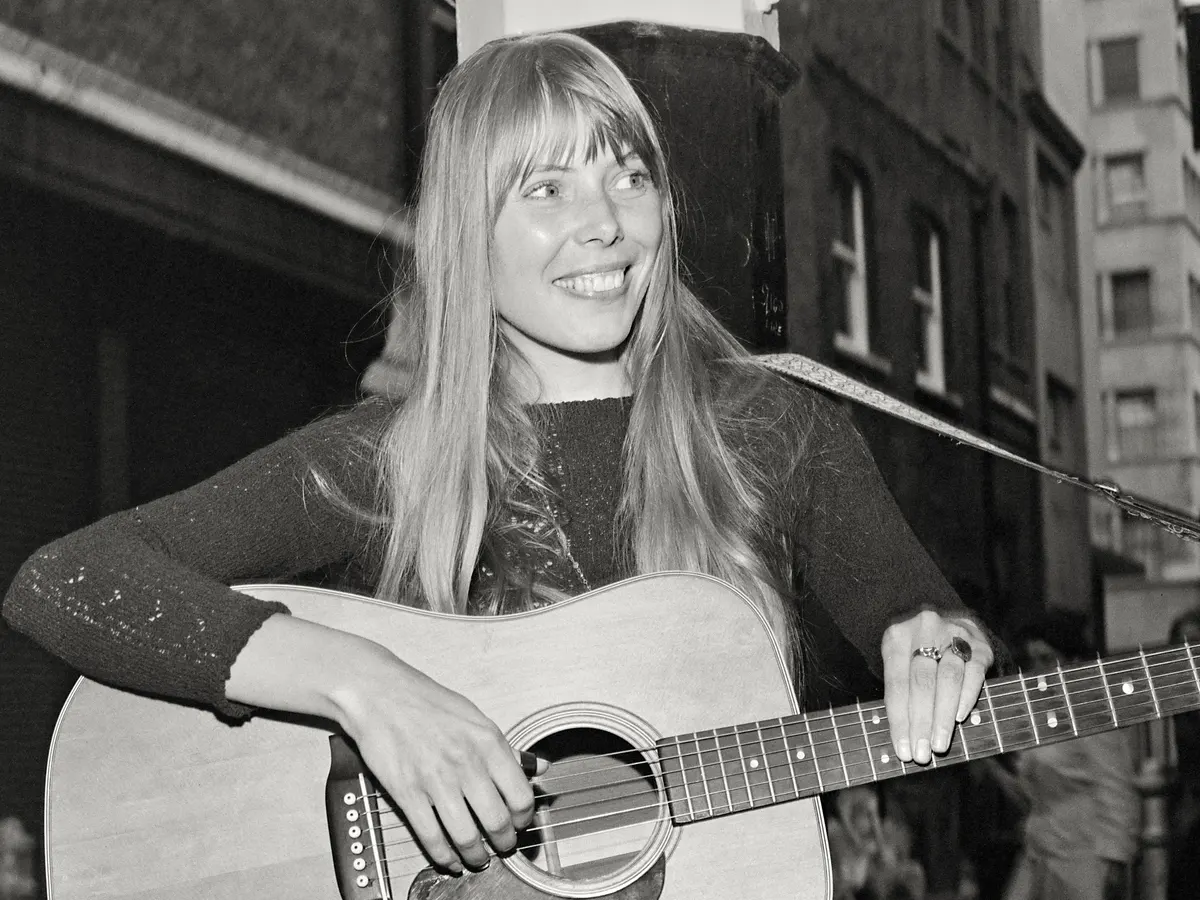After departing Canada in 1965, Joni Mitchell firmly entrenched herself as an accomplished singer-songwriter within the vibrant East Coast folk scene. Her performances in folk clubs spanning from New York City and Philadelphia to Boston and Fort Bragg, North Carolina, not only elevated her standing among peers but also brought her into the orbit of influential figures like Leonard Cohen, Joan Baez, and Judy Collins at the 1967 Newport Folk Festival.
Despite her gender, Mitchell stands as one of the most celebrated and talented songwriters of the 20th century. It’s essential to acknowledge her position as a female solo act in an industry predominantly dominated by male artists. Even today, Mitchell remains a beacon of artistic independence, as her success is solely founded on her singing and songwriting prowess, despite collaborations with various male artists throughout her career.
Mitchell’s lyrical canvas spans the rich tapestry of life, from vivid reflections on Mother Nature to poignant love songs fraught with heartbreak. As an intensely emotional performer, Mitchell excels in expressing internal turmoil, often intertwined with reflections on romantic entanglements, some involving famous peers, adding an extra layer of intrigue.
One of Mitchell’s most renowned works, the 1971 masterpiece album “Blue,” features the poignant ” River,” an anti-Christmas song lamenting her 1970 breakup with Graham Nash. Nash, reflecting on their relationship in a 2021 interview with The Guardian, shared both sadness and joy, acknowledging the end of their romance but also appreciating Mitchell’s courage in baring her soul through the beautiful song.
Intriguingly, Nash hinted at a pivotal reason behind their regretful parting, recounting moments where Mitchell’s creative process took precedence. Despite the complexities, Nash cherished their love, emphasizing Mitchell’s brilliance and predicting her enduring legacy alongside the likes of the Beatles and Bob Dylan.
Mitchell’s friendships and relationships with luminaries like James Taylor, Leonard Cohen, Bob Dylan, David Geffen, Jackson Browne, and Neil Young served as wellsprings of inspiration, resulting in a diverse array of compositions, ranging from uplifting to contemplative.
For her sixth studio album, “Court and Spark” (1973), Mitchell again drew inspiration from the men in her life. The spirited track ‘Free Man in Paris’ was crafted from the perspective of her close friend, David Geffen, a filmmaker and record executive. Mitchell’s ability to draw inspiration from her connections highlights the depth and authenticity embedded in her songwriting.
Another intriguing composition on the album is ‘The Same Situation,’ a mysterious ode to a man in her life. Mitchell’s reluctance to disclose the identity of this enigmatic figure adds an air of intrigue. The song, possibly referencing Hollywood bachelor Warren Beatty, navigates the complexities of love and vulnerability without explicitly naming names. The shroud of mystery surrounding ‘The Same Situation’ adds to Mitchell’s allure as a principled and enigmatic artist, leaving listeners to unravel the layers of her captivating musical narrative.
Listen to Joni Mitchell’s ‘The Same Situation’ below.
